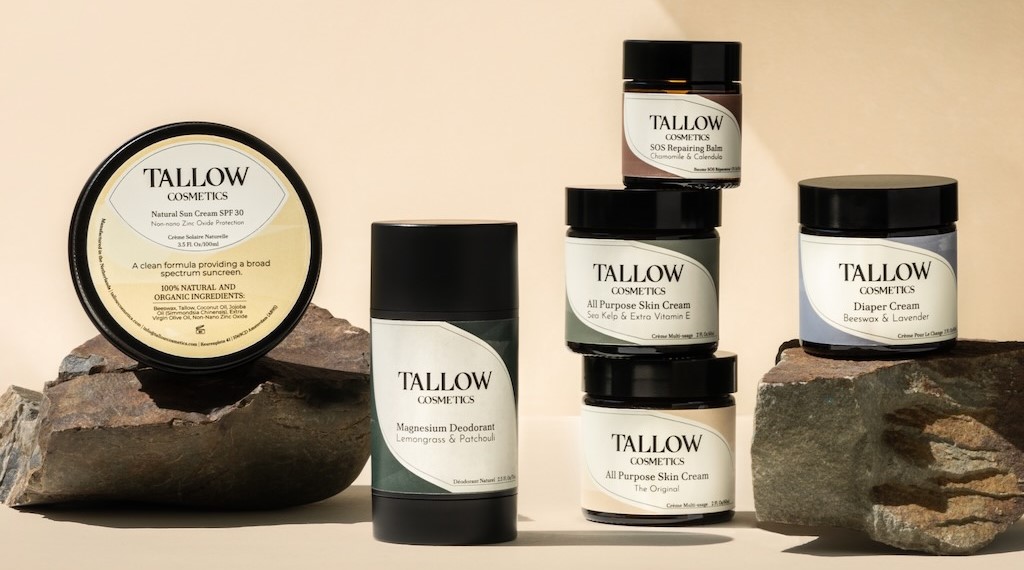Superfood - Dried raw pumpkin vysoký obsah betakarotenu a vlákniny - 450 g

For your purchase, we will credit you:
+428.25 Kreditů to Bonus programmeOrganic pumpkin flour from Ceylon Kokonati is a great alternative to traditional white, heavily processed, high carbohydrate flours. Due to its high fibre content, pumpkin takes longer to digest and is effectively filling.
Check out food blogger Hanky's IG where she has prepared a recipe for a pumpkin smoothie using our flour/powder. You can buy the unique coconut syrup made from nuts growing on the wild Kithul palm here.
Uses of pumpkin flour - superfoods
The easiest way to use flour is to substitute wheat flour. You usually cannot substitute all the flour in a recipe that was designed for wheat, but partial substitution can improve the nutritional value of the recipe.
Most recipes manage to replace about 25% of the wheat flour with pumpkin flour. This will change the taste and appearance of the food, so try each recipe in private before bringing it to a party.
There are also plenty of recipes that are designed to use pumpkin flour. It is good for making bread, but some people also use it to make special pumpkin pie crusts. You can do everything with it that you can do with regular flour, so with a little searching you can find a recipe for almost anything.
You can find some simple and usable recipes in the Video tab.
Outside of the kitchen, it also makes a lovely addition to scrubs or masks! Last but not least, try pumpkin flour as a thickener for hearty autumn soups, stews and maybe even sauces!
Making pumpkin flour
Pumpkin flour is made by drying the pumpkin and then grinding it into a fine flour/powder. Pumpkin flour has the smell and taste of pumpkin. No chemical refining, additives or preservatives were used in its production to standardize the product.
Ceylon Kokonati uses only single origin, ethically harvested non GMO ingredients for their products. Their products are vegan, gluten-free, suitable for keto, paleo and raw diets. They do not contain any refined white sugar.
By buying them, you support traditional livelihoods and reduce your carbon footprint - because the products are produced and packaged right at the harvest site.
Benefits of pumpkin flour
- Pumpkin is high in vitamins and minerals and low in calories.
- Pumpkin is a great source of betacarotene, a carotenoid that is converted into vitamin A in the body.
- Pumpkin contains the antioxidants alpha-carotene, beta-carotene, beta-cryptoxanthin and many others that can protect cells from free radical damage.
- Pumpkin is high in vitamins A and C, which help boost the immune system. The immunity can also be strengthened by the vitamin E, iron and folic acid contained in it.
- The high content of vitamin A, lutein and zeaxanthin in pumpkins may protect the eyes from vision loss, which is increasingly common with age.
- Pumpkin is packed with nutrients and yet has less than 50 calories per cup (245 grams). It is also a good source of fiber, which can suppress appetite.
- Pumpkins contain carotenoids, which act as antioxidants.
- Pumpkin is a good source of potassium, vitamin C, fibre and antioxidants, which have a beneficial effect on heart health.
- Pumpkin is high in beta-carotene, which acts as a natural sun block.
- It also contains vitamins C and E and lutein and zeaxanthin, which help keep skin strong and healthy.
Why include pumpkin flour in your kitchen
- You have a household where there are people with food allergies.
- Are you a fan of a healthy lifestyle or follow a vegan, low carb, keto, dia or paleo diet.
- Are you tired of the fact that most vegan recipes are largely dependent on the use of nuts like almonds.
- The flour can be used in savoury and sweet dishes.
- Pumpkin flour can be used to make bread, pasta, cakes, waffles, pies and other baked goods.
- It can also be used in desserts, crumbles, shakes, protein bars and energy balls.
- Usually 1 cup of flour can be completely replaced with pumpkin flour, but keep in mind that this will depend on the recipe and also on the final product you are baking.
- You can reduce the amount of wheat flour used, which is not nutritionally substantial and not good for the digestive system.
Tips on how to rehydrate dried pumpkin
Whenever you want to make something, you can either use pumpkin powder for flavoring, or you can dehydrate the pumpkin powder to puree it again!
Use in any recipe that calls for pumpkin puree. See video tab and recipes.
You will need
- 2 cups hot water
- ½ cup pumpkin powder
Preparation
- Mix 2 cups hot water with ½ cup pumpkin powder.
- Let the mixture stand for 10-15 minutes!
What is a native (heirloom) seed variety?
A so-called heirloom variety (whether of plants, seeds, fruits or vegetables) is an open-pollinated variety that was commonly cultivated in earlier times in human history, but is not used in modern large-scale agriculture because of the cartel-like behavior of a large corporation like Monsanto, which is behind the destruction of ancient seeds and the food chain in general across the planet.
See the document below. And here is a link to the website of a Canadian university, The University of British Columbia, which explains briefly what it is. If you do not speak English, use the online translator: deepl.com
We have translated this paragraph from the English Wikipedia:
Before the industrialisation of agriculture, a much wider variety of plant foods were grown for human consumption, mainly because farmers and gardeners saved seeds and cuttings for future planting. From the 16th century to the early 20th century, the diversity was enormous. The old nursery catalogues were full of plums, peaches, pears and apples of many varieties and the seed catalogues offered legions of vegetable varieties. These catalogues were used to sell and trade valuable and carefully selected seeds along with useful advice on growing.
Since the Second World War, agriculture in the industrialised world has consisted mainly of food crops grown on large monoculture plots. Only a few varieties of each type of crop are grown to achieve the greatest consistency. These varieties are often selected for their productivity and their ability to ripen at the same time and withstand mechanical harvesting and transport across borders, as well as their resistance to drought, frost or pesticides. This form of agriculture has led to a 75% decline in the genetic diversity of crops.
Although heirloom or heirloom cultivation has retained its place in local communities, it has seen a resurgence in recent years in response to the trend towards industrial agriculture. In the southern hemisphere, heirloom plants are still widely cultivated, for example in home gardens in South and Southeast Asia. Before the Second World War, most of the products grown in the United States were heirloom varieties, but this was abandoned with the arrival of Monsanto.
Other sources of articles:
The practice of Monsanto and BASF of Germany in pushing dicamba (a weed killer) on American farmers
The Guardian:Revealed: Monsanto predicted cropping system will damage US farms
In the 21st century, many communities around the world are working to preserve historic varieties so that a wide range of fruits, vegetables, herbs and flowers are once again available to growers by restoring old orchards, sourcing historic fruit varieties, engaging in seed swaps and encouraging community participation.

Ceylon Kokonati uses only single origin, ethically harvested non GMO ingredients for their products. Their products are vegan, gluten-free, suitable for keto, paleo and raw diets. They do not contain any refined white sugar.
By buying them, you support traditional livelihoods and reduce your carbon footprint - because the products are produced and packaged right at the harvest site. Ceylon Kokonati strives for 100% zero waste production.
This product is internationally accredited by Control Union, certified organic (EU and USDA NOP), ISO and/or HACCP certified.
Ceylon Kokonati manufactures its products in a family-run sweatshop, pays fair prices to its suppliers and manufacturers, and incorporates generations of knowledge into its production processes. It uses only the highest quality ingredients. So you can be sure that you are getting premium quality at a premium price. By buying flour, you support the traditional livelihoods of villagers in the dry areas of Sri Lanka. This allows the villagers to benefit from their years of knowledge and expertise.
The sale of these products plays a vital role in employment and economic support for the village community. Ceylon Kokonati provides the children of its employees with school books and stationery for the entire school year.
Read more on this topic
Fruit flours I. - Breadfruit flour
Fruit flours II - Green banana flour
Gluten-free diet not only for celiacs?
Discover low carb or more energy, less sugar
What to eat in winter to stay healthy?
How to prevent Christmas overeating or mitigate its effects
Enhance your workout with the right and effective supplements
Additional parameters
| Category: | Flour |
|---|---|
| Výrobce: | Ceylon Kokonati |
| Země původu: | Srí Lanka |
| Vhodné pro: | Keto-Paleo-GMO Free-Vegan-Bezlepková dieta-Low Carb-Sugar Free |
| Proč koupit: | Jediná ingredience, balena u zdroje, nikdy žádné příměsy, single-origin, GMO-free a vegan. |
| The item has been sold out… | |
Buns with cream (ANJ) - (make a puree from dried flour)
Fluffy brioche (ANJ) - (make a puree from the dried flour)
Fluffy pumpkin sandwich ala Christmas style (ANJ) - (make puree from dried flour)
Chinese steamed dumplings (ANJ) - (make a puree from the dried flour)
Be the first who will post an article to this item!
The Ceilon Kokonati brand was established in 2013. In its range you can find a variety of high quality and affordable products made from sustainably produced coconuts, spices and tropical fruits.
The brand's name refers to the country that its founders consider home, Ceylon, Sri Lanka, where the coconuts for the coconut line of products are grown and processed. Ceylon, a British Crown Colony from 1815-1948, is now known as Sri Lanka, but the founders of the brand prefer to call it Ceylon because it definitely sounds more exotic and "pure Ceylon" is a brand in itself, reminiscent of the fresh unique essence of pure Ceylon tea. "Kokonati" on the other hand is Maori for coconut, so absolutely the most appropriate brand name for the most coconutty goodness ever.
The Ceilon Kokonati brand is run by a married couple. The female founding half is Mrs. Bûmika, which means Lady of the Earth in Sanskrit. Her great-grandfather was one of the pioneers of coconut oil pressing in Ceylon, making her the fourth generation of coconut oil presser. The male founding half, Mr. Mosqi, in turn, is originally a pure Ceylon tea grower.
Ceylon Kokonati is wholly owned and operated in New Zealand. Loose products from Kokonati uses several ethical brands that produce clean, organic food and beauty products. By selling Kokonati products, rural communities and traditional livelihoods are supported. All their products are ethically harvested and there is almost no waste in their production. Each part of the coconut is used in the production of a different product. Kokonati products are single-ingredient, packaged directly at the source, never mixed, single-species, non-GMO and vegan.
With a passion for organic, regenerative farming, sustainability and collective partnerships, Kokonati products come only from small farms and mills in rural villages in Sri Lanka. Each Kokonati product is produced in a specialized mill that produces only that type of product. Quality is therefore the best it can be, and every step of production is backed by the experience and knowledge of many generations. Ceylon is blessed with an abundance of healthy, exotic fruits, nuts, herbs and spices.
Ceylon Kokonati follows the principles of balanced living - live and let live.
They're trying to keep everything in even better condition than when they found it..

.jpg)









































































